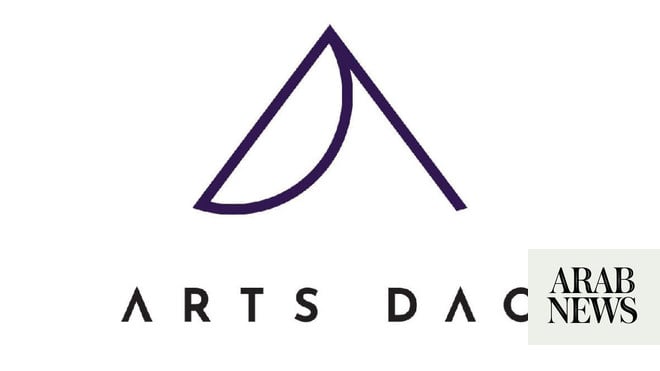Mideast NFT community Arts DAO signs partnership with crypto security organization Ledger
DUBAI: Ledger, a leading organization offering digital storage for cryptocurrencies, has partnered with Arts DAO, a NFT and Web3 community in the Middle East, to provide hardware wallet solutions for the latter’s UAE-based members.
Art DAO is a collector’s decentralized autonomous organization and Web3 business that focuses on two pillars: community and consulting.
Ledger was founded in 2014 in France by eight specialists with backgrounds in embedded security, cryptocurrency, and entrepreneurship, to develop secure solutions for blockchain applications.
The company has sold over 5 million devices around the world and is responsible for securing 20 percent of all crypto assets stored globally.
To celebrate the partnership, the two companies launched “100 Ledger NFTs,” marking Ledger’s first such collection. Arts DAO also provided community members with branded ledgers, allowing NFT owners to claim a physical Ledger hard wallet.
Cryptocurrencies have garnered a bad reputation due to the illegal activities of some exchanges, most notably FTX.
“Following the crash of FTX, more and more people realized that centralized exchanges are not flawless, and assets can easily be lost if you do not take custody of your crypto yourself,” Danosch Zahedi, co-founder of Arts DAO, told Arab News.
Similarly, Celsius Network, a crypto lender, landed in trouble earlier this month, after a US bankruptcy judge ruled that the company owns most of the cryptocurrency that customers deposited into its online platform, meaning most Celsius customers will be last in line for repayment.
“These two major news stories have reinforced the importance that, if you believe in decentralization and decentralized finance, then keeping your cryptocurrencies in self-custody through ‘cold storage’ or hardware wallets is the safest method,” Zahedi explained.
When someone buys a cryptocurrency, they receive a private key, which is a piece of data required to approve transactions on the blockchain. Anyone with access to the key can use the funds, which is why Arts DAO advises consumers to use a hardware solution such as one offered by Ledger.
When the private key is stored offline in a hardware wallet, it cannot be accessed online, which means that if, for example, an individual’s computer is hacked, the hacker won’t be able to access the private key, and therefore their crypto assets.
“As we say in crypto, ‘Not your keys, not your crypto,’ which refers to the lack of a private seed-phrase or key-phrase which grants you access to your cold storage,” Zahedi added.
Following illegal activities in the crypto space, regulatory authorities are working on solutions to secure the growing industry.
For example, the UAE’s Virtual Assets Regulatory Authority has started to collect information about all crypto entities in the country, and requires the self-disclosure of all activities.
“This disclosure is one step in the process for regulatory bodies to better map out the various entities in the crypto and digital assets space, and it is the first step to better regulate and help support these companies to do business in a controlled environment where hopefully future scandals like the ones we’ve recently seen can be prevented,” said Zahedi.
Regulation is critical given the UAE’s investment in Web3, which Zahedi believes is here to stay.
“To say that NFTs or other Web 3 technologies are a fad is to renounce the technology as a whole, and the revolutionizing properties it brings,” he said.
“NFTs had a good run within the digital art space and are now a multibillion-dollar industry,” but the future, he said, lies in the tokenization of assets. “Almost any physical asset can be tokenized through an NFT, which enables the unlocking of liquidity in traditional assets that were previously considered illiquid,” he explained.
Still, the industry is in its nascent stages with a few early adopters, and there is some time to go until it reaches mass adoption. However, when it does, it will be as ubiquitous as smartphones today.
By the time the industry reaches mass adoption, Zahedi said, “the barrier to entry will be so low and seamless, that most people will not even notice that they own a NFT.”
Credit: Source link


 Bitcoin
Bitcoin  Ethereum
Ethereum  Tether
Tether  XRP
XRP  Solana
Solana  Dogecoin
Dogecoin  USDC
USDC  Cardano
Cardano  Lido Staked Ether
Lido Staked Ether  TRON
TRON  Avalanche
Avalanche  Sui
Sui  Wrapped stETH
Wrapped stETH  Toncoin
Toncoin  Chainlink
Chainlink  Shiba Inu
Shiba Inu  Wrapped Bitcoin
Wrapped Bitcoin  Stellar
Stellar  Hedera
Hedera  Polkadot
Polkadot  WETH
WETH  Bitcoin Cash
Bitcoin Cash  LEO Token
LEO Token  Uniswap
Uniswap  Litecoin
Litecoin  Pepe
Pepe  Hyperliquid
Hyperliquid  Wrapped eETH
Wrapped eETH  NEAR Protocol
NEAR Protocol  USDS
USDS  Ethena USDe
Ethena USDe  Internet Computer
Internet Computer  Aptos
Aptos  Aave
Aave  Mantle
Mantle  MANTRA
MANTRA  POL (ex-MATIC)
POL (ex-MATIC)  Render
Render  Cronos
Cronos  Ethereum Classic
Ethereum Classic  Monero
Monero  Bittensor
Bittensor  Artificial Superintelligence Alliance
Artificial Superintelligence Alliance  Dai
Dai  Tokenize Xchange
Tokenize Xchange  Virtuals Protocol
Virtuals Protocol  Filecoin
Filecoin
Comments are closed.